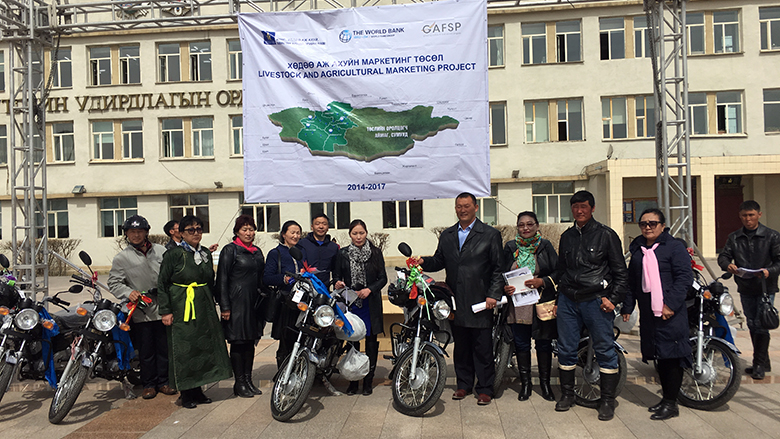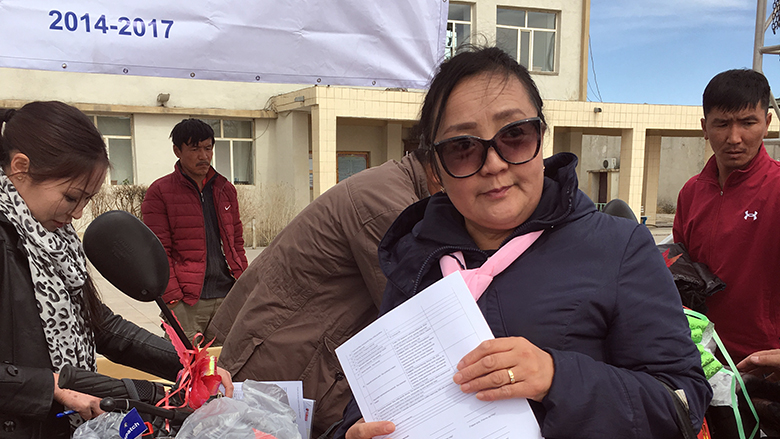A private sector veterinarian who works in Bayantsgaan, a soum located 230 km south of provincial center of Bayankhongor, Mrs. D. Erdenesuvd has been taking care of animals since 2007. She oversees over 200,000 livestock that belong to about 200 herder households. Her farthest client lives 120 km away from her duty station. There are more than 1,500 private sector veterinarians like her who work Mongolia’s 331 soums.
She does preventive care on livestock, on-site diagnosis for outbreaks of both infectious and noninfectious diseases, sends samples to the provincial laboratory for testing, and prepares case reports.
When asked about her workload, she said, “Spring is peak season for us as the weather turns harsh and livestock offspring are more prone to sickness.”
“Except for a few outbreaks of common diseases, livestock in the soums I look after are quite healthy and free of contagious diseases,” she added.
The current Law on Protecting Animal Genetics and Health regulates health inspections, including screening and laboratory tests. Annual contracts between the soum governor and VABU vet specialist, and the individual herders and soum animal clinic cover veterinarian services.
“Everything I do is covered under the contract. For instance, if a herder calls me to report an unusual situation, the early symptoms of a disease, or a sudden increase in his livestock’s mortality rate, he pays for the cost of transport which covers fuel. I used to go by car so it cost more. With this new motorcycle, I expect that it will go down significantly. I will have to learn to drive it first though.”
Herders also pay for anti-parasite medicine which costs 130 Mongolian Tugrug (around $0.06) per head of livestock but the government pays for the service fee.
. Improving their awareness has made herders more willing to share in the health service costs for their private “moving” assets. For example, to receive wool or hide subsidies, herders need to keep their livestock healthy by keeping them disease-free. Public awareness activities supported by the project also helped in spreading the word about keeping herds healthy.
Interest rates for bank loans available to herders have decreased from 18% to 10%, but lower rates can be available only to those who keep their livestock healthy and have them vaccinated against diseases.
Mr. L. Bayartulga, State Secretary of the Ministry of Food, Agriculture, and Light Industry said, “Improving rural livelihoods and food security by linking herders to markets and raising livestock productivity and quality are high on the government’s agenda. Projects such as LAMP play an important role in contributing to the objectives set out in the 2016-2020 Government Action Plan, and Agricultural Sector Policy Action Plan, in particular.”
, changes that will help the country fulfill goals such as preserving nomadic culture as a national brand, and enter the competitive international market to diversify its economy.


